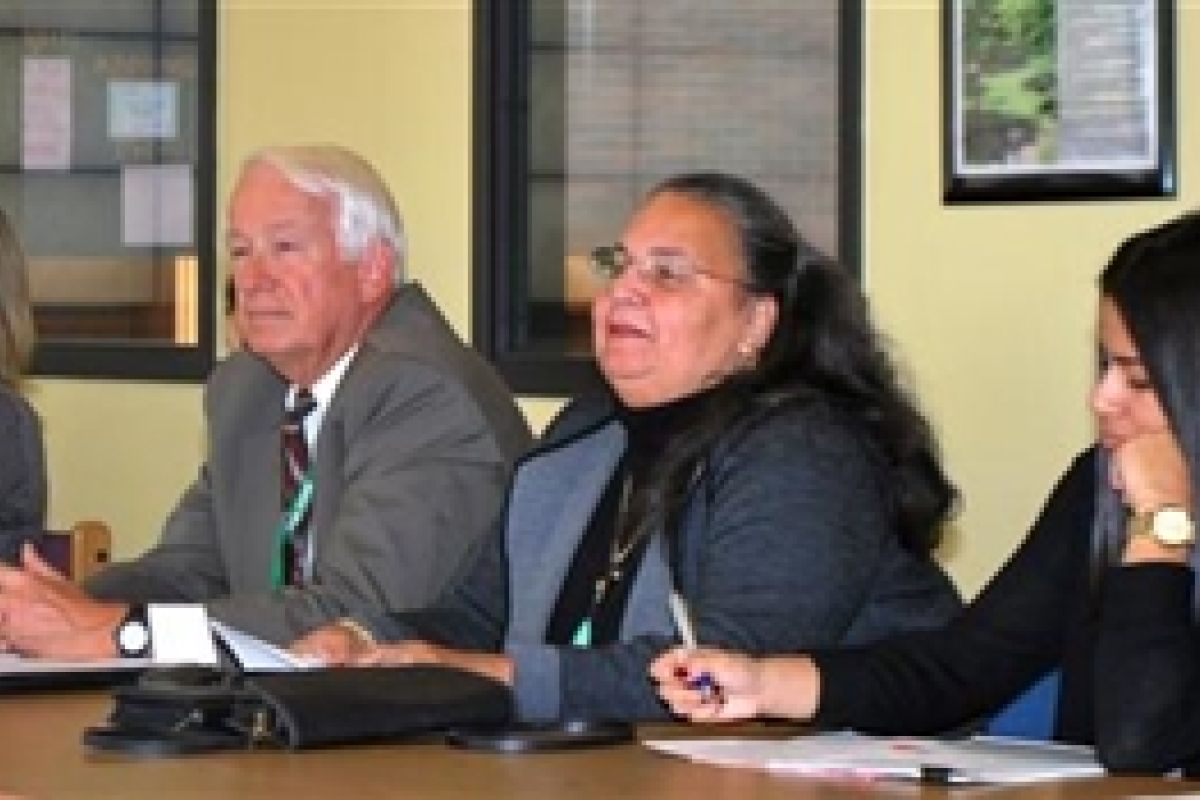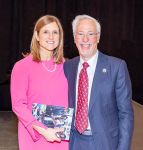News and Releases
NVCC Strategizes to Support America’s College Promise
Share

The nonpartisan America’s College Promise campaign seeks to establish two years of free community college education for responsible students throughout the United States. While President Barack Obama brought renewed energy to the goal during his 2015 State of the Union address, free, universal community college education was proposed nearly 70 years ago by President Harry S. Truman.
In an effort to build support for America’s College Promise, Naugatuck Valley Community College students, faculty, staff and administrators participated in a session on October 27 to discuss the initiative and brainstorm how the NVCC community can help.
As the cost of higher education increases and students take on more debt, NVCC President Daisy Cocco De Filippis said free, universal community college can make a significant difference in the lives of so many—young and old—who are struggling to improve themselves through education.
“Whoever you are, this plan is your chance to graduate ready for the new economy without a load of debt,” she said. The economic benefits generated by a better-educated workforce and the resulting higher salaries and tax revenue are likely to outweigh the cost of such a program in the long run, President De Filippis added. “This is a dream and this is a dream that will take work and years to come to fruition, but it’s worthwhile.”
While it’s too early to determine how exactly a universal community college program would be funded and administered, NVCC Provost and Senior Dean of Administration James Troup noted that the movement is gaining traction. “You’ve got a lot of people starting to get behind this move. We [at NVCC] would only be a small piece of it, but we could have a really big impact.” In Connecticut, Troup believes the best route to success would be a statewide effort benefitting all 12 public community colleges.
Troup noted that one of the decisions that must be made is how such a benefit would be distributed. Would two years of free community college tuition be on top of all other educational benefits a student may receive, such as Federal Pell Grants, or would College Promise cover just the gap between other benefits and the total cost of tuition? The former is called first-dollar funding and would cost more but could give students more freedom to focus exclusively on their education. The latter is called last-dollar funding and could cost less, thus potentially making it more politically palatable.
“Most of the students whom I encounter are mothers, fathers and they’re trying to make a living, and they’re coming back to school after realizing that their jobs are requiring a degree,” said Katherine Abreu, president of NVCC’s Student Government Association. “If this money is invested into them, it would be a huge weight that is taken off of their shoulders.”
The meeting resulted in a consensus that the campus community would build a critical support for College Promise by forming a group of about 10 people from all areas of the College to gather facts and statistics and devise a plan of action. Strategies may include sharing community college success stories, writing op-ed pieces and preparing “elevator speeches” for every occasion to espouse the benefits of bringing higher education to the next level in America.
“This is certainly an effort where it does not go to the swift. This is a slow, steady effort to move the needle,” said Assistant Professor Kathy Taylor, Esq., president of the NVCC Faculty Senate. The time is right to have this conversation, she said. “Begin to frame the conversation in a way that we feel comfortable with, and that’s also supported by the facts.”
Recognizing that College Promise has a self-imposed three-year timeline, everyone in the room agreed that this is an undertaking that would benefit future students at NVCC, but that support for current students must not be affected.
Other Naugatuck Valley Community College News
HAVE A QUESTION? EMAIL US.
Reporters and media inquiries, please contact us at










